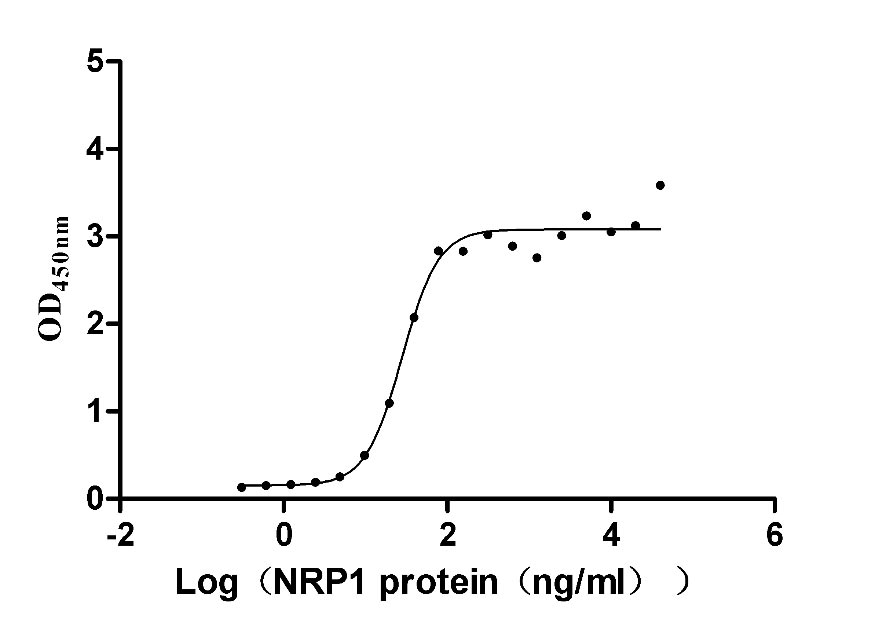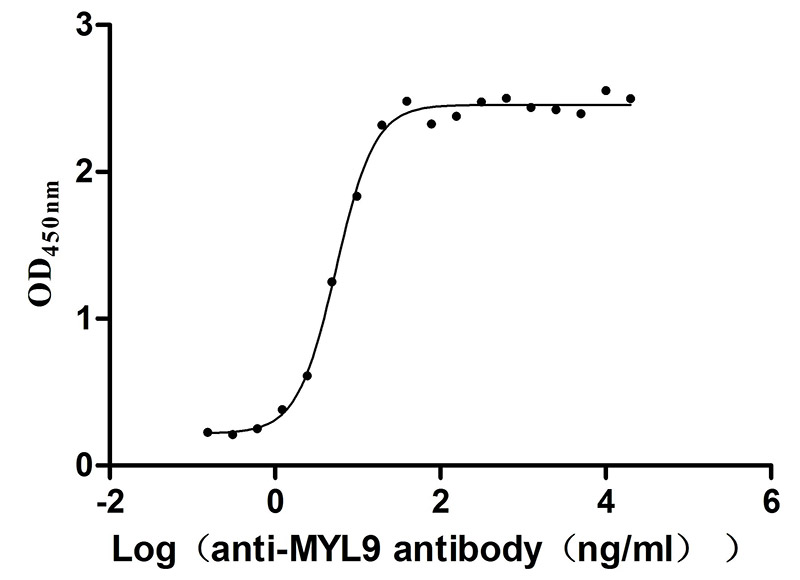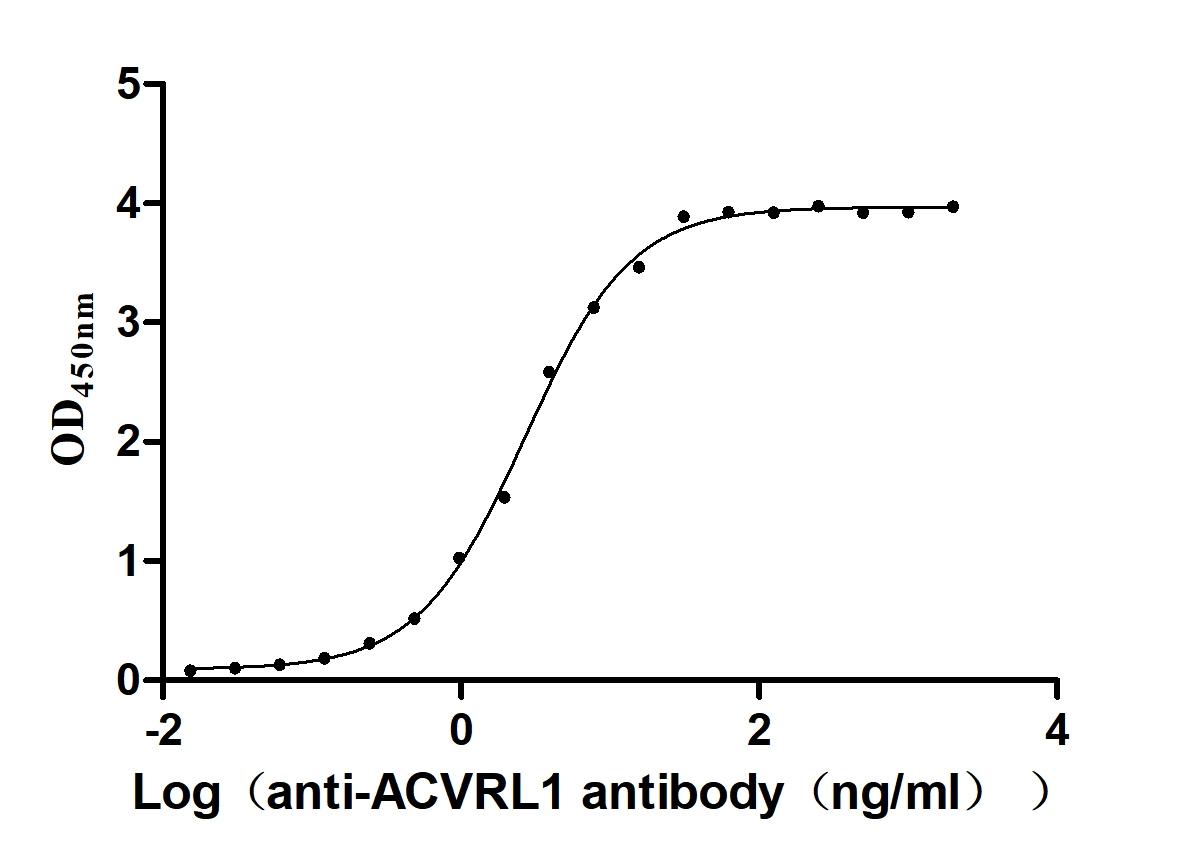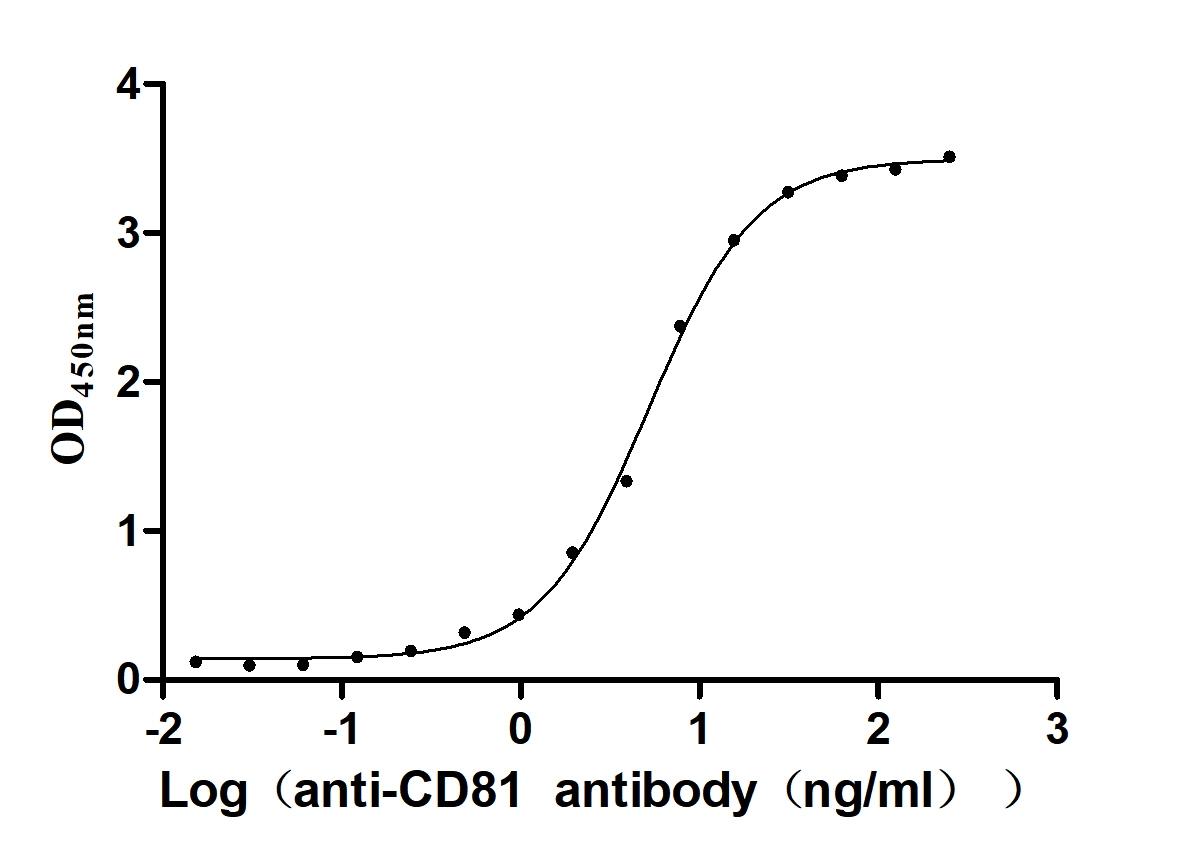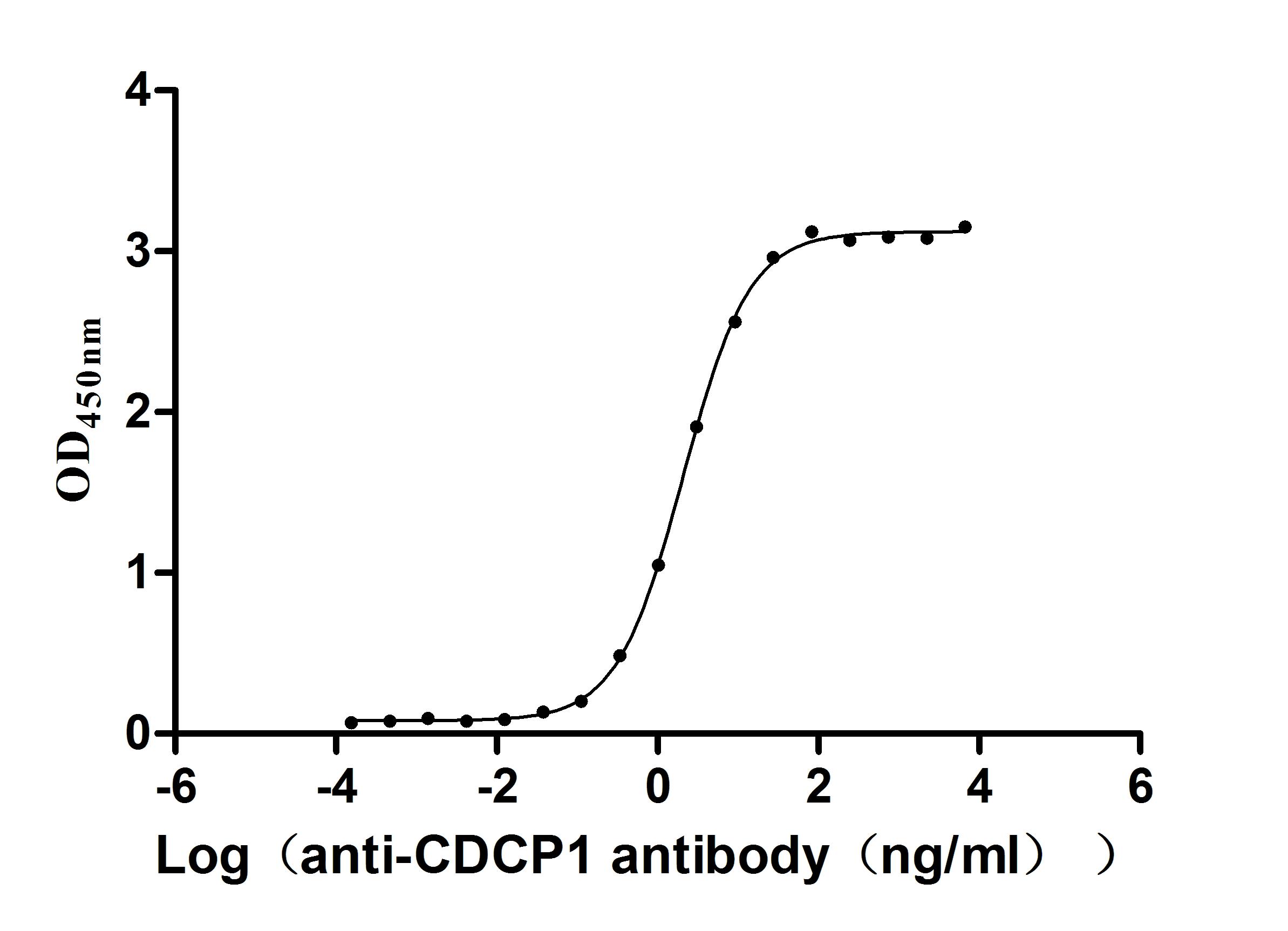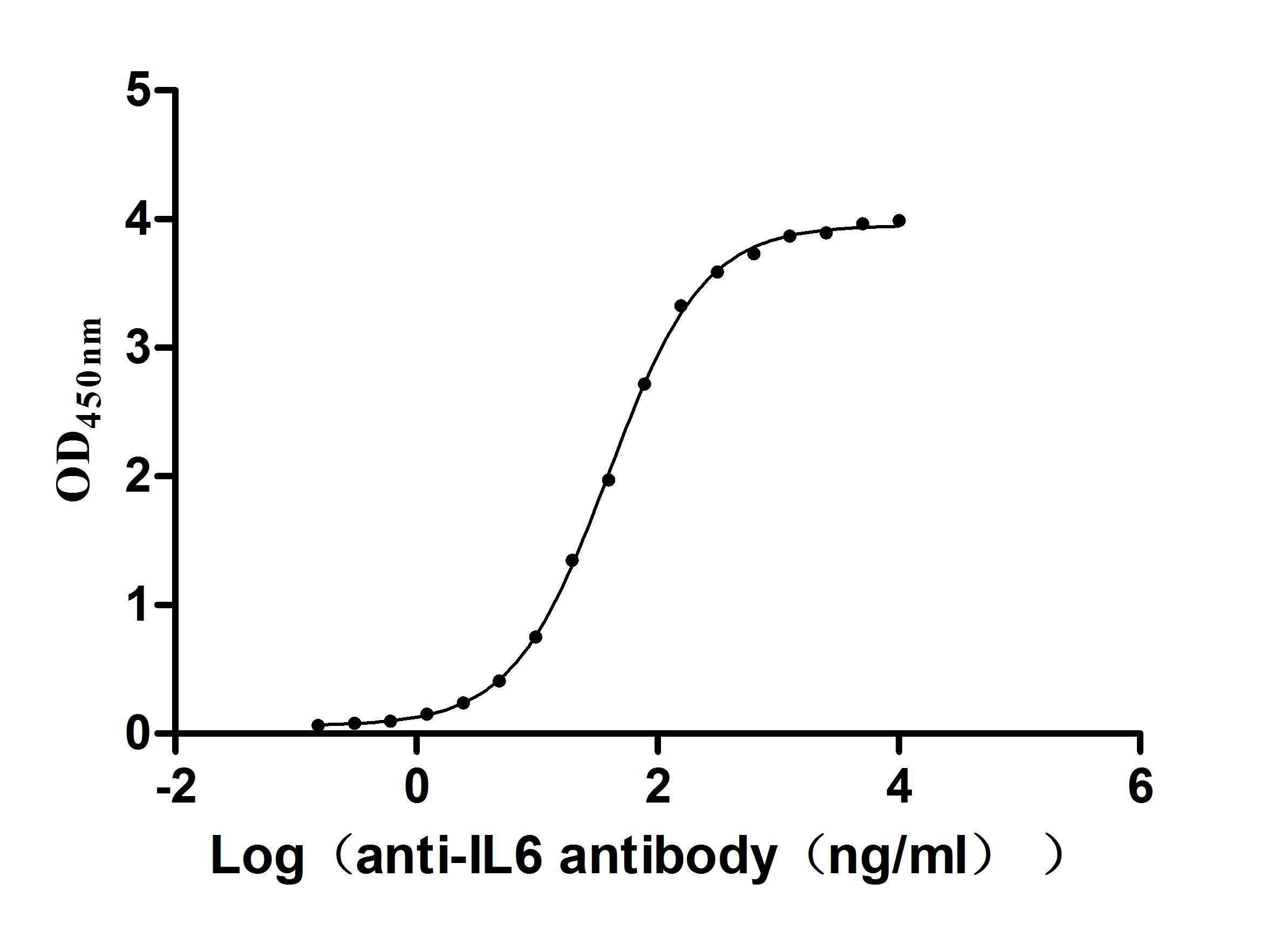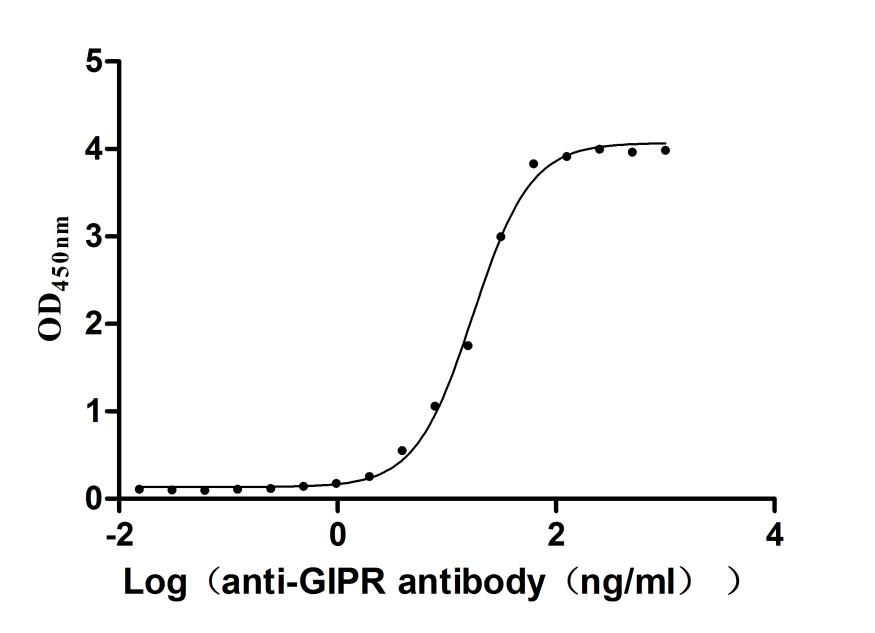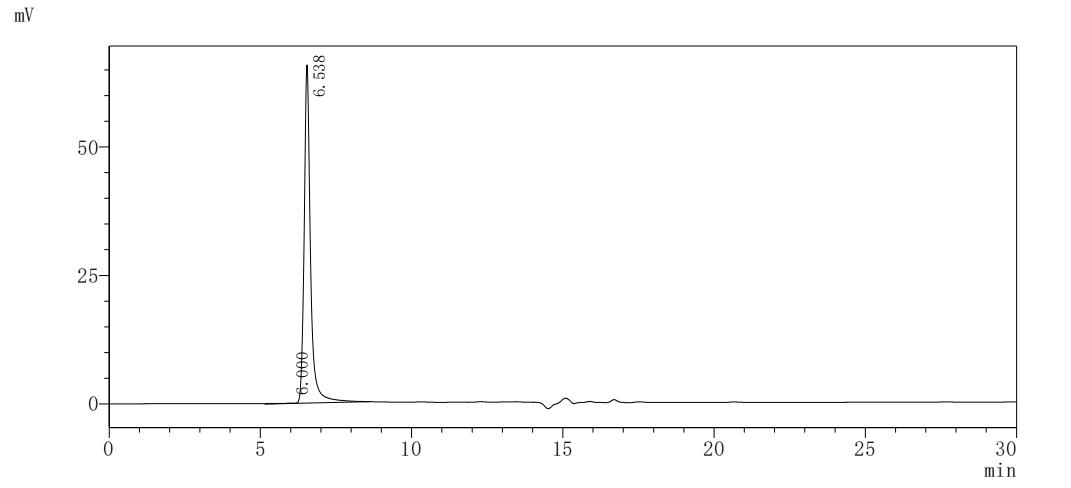Recombinant Human StAR-related lipid transfer protein 3 (STARD3)
-
货号:CSB-CF618912HU
-
规格:
-
来源:in vitro E.coli expression system
-
其他:
产品详情
-
基因名:
-
Uniprot No.:
-
别名:STARD3; CAB1; MLN64; StAR-related lipid transfer protein 3; Metastatic lymph node gene 64 protein; MLN 64; Protein CAB1; START domain-containing protein 3; StARD3
-
种属:Homo sapiens (Human)
-
蛋白长度:full length protein
-
表达区域:1-445
-
氨基酸序列MSKLPRELTRDLERSLPAVASLGSSLSHSQSLSSHLLPPPEKRRAISDVRRTFCLFVTFD LLFISLLWIIELNTNTGIRKNLEQEIIQYNFKTSFFDIFVLAFFRFSGLLLGYAVLRLRH WWVIAVTTLVSSAFLIVKVILSELLSKGAFGYLLPIVSFVLAWLETWFLDFKVLPQEAEE ERWYLAAQVAVARGPLLFSGALSEGQFYSPPESFAGSDNESDEEVAGKKSFSAQEREYIR QGKEATAVVDQILAQEENWKFEKNNEYGDTVYTIEVPFHGKTFILKTFLPCPAELVYQEV ILQPERMVLWNKTVTACQILQRVEDNTLISYDVSAGAAGGVVSPRDFVNVRRIERRRDRY LSSGIATSHSAKPPTHKYVRGENGPGGFIVLKSASNPRVCTFVWILNTDLKGRLPRYLIH QSLAATMFEFAFHLRQRISELGARA
Note: The complete sequence including tag sequence, target protein sequence and linker sequence could be provided upon request. -
蛋白标签:N-terminal 10xHis-tagged
-
产品提供形式:Liquid or Lyophilized powder
Note: We will preferentially ship the format that we have in stock, however, if you have any special requirement for the format, please remark your requirement when placing the order, we will prepare according to your demand. -
缓冲液:Lyophilized from Tris/PBS-based buffer, 6% Trehalose, pH 8.0
-
储存条件:Store at -20°C/-80°C upon receipt, aliquoting is necessary for mutiple use. Avoid repeated freeze-thaw cycles.
-
保质期:The shelf life is related to many factors, storage state, buffer ingredients, storage temperature and the stability of the protein itself.
Generally, the shelf life of liquid form is 6 months at -20°C/-80°C. The shelf life of lyophilized form is 12 months at -20°C/-80°C. -
货期:Basically, we can dispatch the products out in 1-3 working days after receiving your orders. Delivery time may differ from different purchasing way or location, please kindly consult your local distributors for specific delivery time.Note: All of our proteins are default shipped with normal blue ice packs, if you request to ship with dry ice, please communicate with us in advance and extra fees will be charged.
-
注意事项:Repeated freezing and thawing is not recommended. Store working aliquots at 4°C for up to one week.
-
Datasheet & COA:Please contact us to get it.
相关产品
靶点详情
-
功能:Sterol-binding protein that mediates cholesterol transport from the endoplasmic reticulum to endosomes. Creates contact site between the endoplasmic reticulum and late endosomes: localizes to late endosome membranes and contacts the endoplasmic reticulum via interaction with VAPA and VAPB. Acts as a lipid transfer protein that redirects sterol to the endosome at the expense of the cell membrane and favors membrane formation inside endosomes. May also mediate cholesterol transport between other membranes, such as mitochondria membrane or cell membrane. However, such results need additional experimental evidences; probably mainly mediates cholesterol transport from the endoplasmic reticulum to endosomes. Does not activate transcriptional cholesterol sensing. Able to bind other lipids, such as lutein, a xanthophyll carotenoids that form the macular pigment of the retina.
-
基因功能参考文献:
- Findings suggest that MLN64 overexpression induces an increase in mitochondrial cholesterol content and consequently a decrease in mitochondrial GSH content leading to mitochondrial dysfunction. In addition, MLN64 expression is increased in Niemann-Pick C1 deficient cells and plays a key role in cholesterol transport into the mitochondria. PMID: 28282615
- Study present a rare case of a 46,XY patient with CHD associated with ambiguous genitalia consisting of a clitoris-like phallus and a bifid scrotum. Exome sequencing revealed novel homozygous mutations in the FGFR1 and STARD3 genes that may be associated with the phenotype. PMID: 27055092
- Structure of the lutein-binding domain of human StARD3 at 1.74 A resolution and model of a complex with lutein has been presented. PMID: 27487925
- Thus, STARD3 is a cholesterol transporter scaffolding endoplasmic reticulum-endosome contacts and modulating cellular cholesterol repartition by delivering cholesterol to endosomes. PMID: 28377464
- STARD3 or STARD3NL-mediated ER-endosome contacts, which affect endosome dynamics, are believed to be involved in cholesterol transport PMID: 27068960
- Elevated StARD3 expression may contribute to breast cancer aggressiveness by increasing membrane cholesterol and enhancing oncogenic signaling. PMID: 25681734
- Data indicate that mitochondrial proteolytic activation of START domain-containing protein 3 (STARD3) enhances steroidogenesis. PMID: 25459514
- Findings show that PPP1R1B-STARD3 fusion transcript has a key role in subsets of gastric cancers through the activation of PI3K/AKT signaling. PMID: 24276243
- STARD3 or STARD3NL and VAP form a novel molecular tether between late endosomes and the endoplasmic reticulum. PMID: 24105263
- Haplotype analysis indicated that combined effect of STARD3 variants (rs9972882, rs881844, rs11869286 and rs1877031) might affect the risk of GC. PMID: 24291029
- With saturating MLN64, steroidogenesis by placental mitochondria proceeds at near-maximal rate. PMID: 14715710
- data indicate that StARD3 is the primary lutein-binding protein in macula lutea; recombinant StARD3 selectively binds lutein with high affinity PMID: 21322544
- a transport pathway for endosomal cholesterol to mitochondria that requires MLN64, but not NPC1 PMID: 19965586
- FAK contributed to the increased adhesion in MDA-MB-231DeltaMLN64 cells. PMID: 20198306
- role of MLN64 in cholesterol transport from lysosomes to steroidogenic mitochondria PMID: 12070139
- The MENTAL (MLN64 amino-terminal shared with MENTHO) domain might serve to maintain cholesterol at the membrane of late endosomes prior to its shuttle to cytoplasmic acceptor(s). PMID: 15718238
- local sterol enrichment by MLN64 in the late endosomal membranes facilitates their association with actin, thereby governing actin-dependent fusion and degradative activity of late endocytic organelles PMID: 15930133
- In this review, MLN64 defines discrete cholesterol-containing subdomains within the membrane of late endosomes where they may function in cholesterol transport. PMID: 16709157
- three-dimensional atomic models of the StART domains of metastatic lymph node 64 (MLN64) and steroidogenic acute regulatory protein (StAR) proteins in complex with cholesterol PMID: 16990645
- provide evidence for differential cholesterol binding of the two most closely related START domain proteins STARD1 and STARD3 PMID: 18331352
- Differential regulation of STARD1 and D3 reflects their distinct roles in macrophage cholesterol metabolism, and may inform anti-atherogenic strategies. PMID: 19272380
- Oncogenomic recombination hotspot around the PPP1R1B-STARD3-TCAP-PNMT-PERLD1-ERBB2-C17orf37-GRB7 amplicon at human chromosome 17q12 is closely linked to evolutionary recombination hotspot around the GSDML-GSDM locus. PMID: 15010812
显示更多
收起更多
-
亚细胞定位:Late endosome membrane; Multi-pass membrane protein.
-
蛋白家族:STARD3 family
-
组织特异性:Expressed in retina.
-
数据库链接:
HGNC: 17579
OMIM: 607048
KEGG: hsa:10948
STRING: 9606.ENSP00000337446
UniGene: Hs.728838
Most popular with customers
-
Recombinant Human Neuropilin-1 (NRP1) (Active)
Express system: Mammalian cell
Species: Homo sapiens (Human)
-
Recombinant Human Myosin regulatory light polypeptide 9 (MYL9) (Active)
Express system: Yeast
Species: Homo sapiens (Human)
-
Recombinant Human Serine/threonine-protein kinase receptor R3 (ACVRL1), partial (Active)
Express system: Baculovirus
Species: Homo sapiens (Human)
-
Recombinant Human CD81 antigen (CD81), partial (Active)
Express system: Mammalian cell
Species: Homo sapiens (Human)
-
Recombinant Macaca fascicularis CUB domain containing protein 1 (CDCP1), partial (Active)
Express system: Mammalian cell
Species: Macaca fascicularis (Crab-eating macaque) (Cynomolgus monkey)
-
-
Recombinant Human Gastric inhibitory polypeptide receptor(GIPR),partial (Active)
Express system: Mammalian cell
Species: Homo sapiens (Human)
-
Recombinant Human C-C chemokine receptor type 9 (CCR9)-VLPs (Active)
Express system: Mammalian cell
Species: Homo sapiens (Human)


